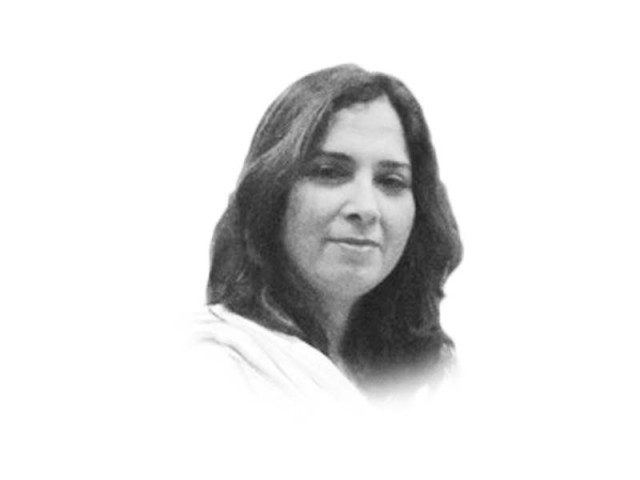A travel of thousand travails
Is Pakistan under a long spell of darkness because of the wrong policies of those sitting in Islamabad?

The writer is a columnist based in Lahore and can be reached at durdananajam1@gmail.com
Driving out of Pasroor towards Sialkot was another chore. Every inch of the road had grooves and ridges. A journey meant to finish in one hour was completed in three. Unless one is in good company this was not the trip meant for socialisation. Upon return a sense of loss gripped us. One could see Pakistan under a long spell of darkness because of the wrong and misplaced policies of those sitting in Islamabad.
Just then the picture of a man called Salahuddin Ayubi became viral. He was wanted in several petty thefts. This time he had stolen an ATM card. Before drawing money, he posed before the camera in the ATM room to hoot at — with a stuck-out tongue — the system he had been conning for so long or vice versa. No sooner was he behind bars. Little did anybody know that Ayubi, a mentally challenged man would be killed in police custody because of third-degree torture. The police would not stop the torture unless his skin came off.
This horrific treatment made people question the government’s failure to introduce police reforms in Punjab. This is not an isolated incident involving police brutality. A boy, Aamir Masih, was also killed in police custody. Lately, many private torture cells have been unearthed in Punjab. The prisoners in these torture cells were kept illegally. The law says that every accused will be produced before the magistrate within twenty-four hours of arrest. Any imprisonment that does not fulfil this condition is considered illegal. But who cares?
After Pasrur we travelled to Kot Momin, a Tehsil headquarter in Sargodha district. Our host told us that he had started calling Kot Momin (Village of the Faithful) as Kot Kafara (Village of the Nonbelievers). The reason? The town has become a hub of criminal activities. He was alluding to the popular maxim that unlike a nonbeliever, a believer can do no harm. I was told that schools have been revamped, but hospitals have not. Quacks are spread across the length and breadth of Sargodha. In fact, many people — according to local stories — had died because of the rising trend of using injectables which in the majority of the cases have proved fatal.
We were shown lines of homes latched with big locks. Their residents had left Pakistan for a better life in Europe. “In a few years they will come and sell their lands and homes to never return again,” said an elderly man in a remorseful tone.
Back in the city, we were to meet people with unlimited resources earned either by the dint of their professional struggle or family background. They were judges, bureaucrats, lawyers, journalists, writers, activists, etc. Most of them too had moved their families to the West for a better life.
One retired army general told us how he sends in dollars all that he earns in Pakistan from his pension and teaching job to his family living in the US. He hates paying to the government the tax charged for remitting dollars abroad.
In the words of one sophisticated man — living in one of the most expensive housing societies of Lahore with grandeur par excellence — there is no hope left for Pakistan.
A retired Supreme Court judge was equally unsure if Pakistan could get over its abysmal condition.
I leave this to the imagination of the readers to decide who is on the right side of history: those who had moved abroad from small towns because of the insensitivity of the system, or those who had the system working to their advantage but insist on abandoning Pakistan because they believe that the country can never have rainbow in its clouds?
Published in The Express Tribune, September 17th, 2019.
Like Opinion & Editorial on Facebook, follow @ETOpEd on Twitter to receive all updates on all our daily pieces.















COMMENTS
Comments are moderated and generally will be posted if they are on-topic and not abusive.
For more information, please see our Comments FAQ